When you’re searching for top-tier rehabilitation 3D printing services, you’ll want providers that combine medical expertise with cutting-edge technology. Stratasys Direct Manufacturing leads with FDM and PolyJet technologies for patient-specific devices, while Materialise excels in anatomical modeling using advanced software solutions. Protolabs offers rapid prototyping with exceptional turnaround times, Fathom specializes in complex rehabilitation equipment, and Quickparts bridges prototyping to production. All maintain ISO 13485 certification for regulatory compliance, ensuring your rehabilitation devices meet the highest standards for clinical applications.
Stratasys Direct Manufacturing for Medical Applications
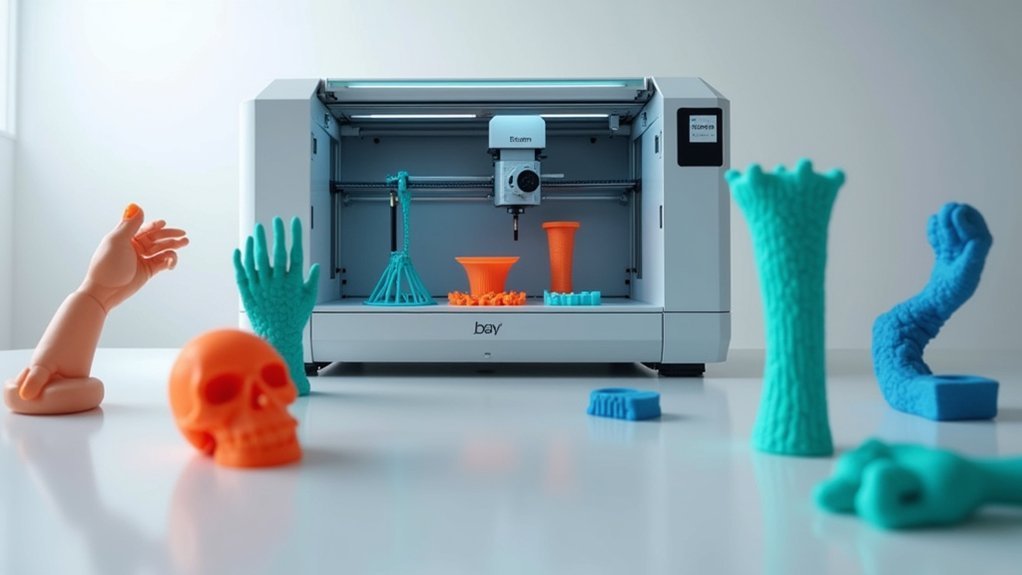
Precision transforms rehabilitation when you’re working with Stratasys Direct Manufacturing’s medical 3D printing solutions.
Advanced 3D printing technology revolutionizes patient care by delivering unprecedented accuracy and customization in medical rehabilitation applications.
You’ll access thorough printing services available through their advanced additive manufacturing technologies, including FDM and PolyJet systems that deliver exceptional anatomical detail.
Their rapid prototyping and production capabilities dramatically reduce development timelines for functional medical devices. You can create patient-specific models tailored to individual rehabilitation needs, while their surgical guides enhance precision during procedures.
As an ISO 13485 certified facility, Stratasys Direct maintains stringent quality standards for medical device manufacturing.
You’ll benefit from their extensive selection of biocompatible materials that meet sterilization requirements across diverse healthcare applications.
Whether you’re developing dental prosthetics or orthopedic solutions, their specialized expertise guarantees reliable, compliant results for your rehabilitation projects.
Materialise Medical 3D Printing Solutions
Innovation drives Materialise Medical’s extensive 3D printing solutions that revolutionize rehabilitation planning and surgical outcomes.
You’ll benefit from their specialized focus on the healthcare sector, where they create patient-specific anatomical models and surgical guides that enhance your treatment precision.
Their advanced Stereolithography and PolyJet technologies produce high-resolution models using biocompatible materials that meet strict safety standards.
You can streamline your workflow with Materialise’s software solutions like Mimics and 3-matic, which efficiently convert medical imaging data into accurate 3D models.
Since they’re ISO 13485 certified, you’re assured their services meet rigorous regulatory requirements.
Through collaborations with leading hospitals worldwide, Materialise consistently delivers innovative solutions that improve patient care and enable more precise surgical procedures for rehabilitation applications.
Protolabs Healthcare Device Manufacturing

When speed meets healthcare innovation, Protolabs delivers extensive device manufacturing solutions that accelerate your rehabilitation equipment development.
You’ll benefit from their rapid prototyping capabilities, receiving functional prototypes in as little as one day for quick design iterations.
Their advanced 3D printing technologies, including Stereolithography and Selective Laser Sintering, create precise medical devices using biocompatible plastics and metals that meet rigorous healthcare applications standards.
You can trust their manufacturing services to maintain exceptional quality while delivering fast turnaround times.
As an ISO 13485 certified company, Protolabs guarantees your rehabilitation devices comply with international quality management standards specific to medical device manufacturing.
Their thorough material selection supports diverse healthcare applications, making them an ideal partner for your rehabilitation equipment needs.
Fathom Rehabilitation Equipment Prototyping
As rehabilitation equipment demands grow more complex, Fathom delivers specialized prototyping services that transform your assistive device concepts into functional reality. Their rapid prototyping approach leverages advanced 3D printing capabilities to create high strength prototypes from your CAD files, ensuring ideal performance in real-world rehabilitation scenarios.
Fathom’s manufacturing process enables quick iterations through these key advantages:
- Material Versatility – You’ll access diverse materials that replicate final product durability and functionality.
- Collaborative Development – Clinicians and designers work together seamlessly to address specific patient requirements.
- Accelerated Timeline – Your rehabilitation equipment moves from concept to clinical testing with considerably reduced development time.
Among the Best 3D Printing Services for rehabilitation applications, Fathom prioritizes precision and efficiency, allowing you to refine designs effectively before full-scale production.
Quickparts Medical Device Production Services

While rapid prototyping accelerates development timelines, moving from prototype to production requires specialized manufacturing expertise. Quickparts bridges this gap with extensive medical device production services that leverage advanced 3D printing technology.
You’ll benefit from their ISO 13485 compliance, ensuring your rehabilitation equipment meets stringent medical device standards.
Their rapid prototyping capabilities enable quick design iterations based on clinician feedback, while their precision manufacturing technology delivers consistent quality across low-volume production runs.
You can access a wide range of medical-grade materials specifically chosen for rehabilitation applications.
Quickparts’ emphasis on quality control and regulatory compliance makes them an ideal partner when you’re shifting from concept to market-ready medical devices in the rehabilitation sector.
Frequently Asked Questions
What Is the Best 3D Printing Service?
You’ll find the best 3D printing service depends on your specific needs. For speed, consider Protolabs or Xometry. They offer rapid prototyping and excellent quality for most projects requiring quick turnaround times.
How Much Does Medical 3D Printing Cost?
You’ll pay anywhere from a few hundred to several thousand dollars for medical 3D printing, depending on complexity, materials, and turnaround time. Simple devices cost less than complex custom models.
What Is the 45 Degree Rule for 3D Printing?
You should follow the 45 degree rule, which states that overhangs shouldn’t exceed 45 degrees from vertical. This prevents sagging and eliminates support structures, improving your print quality and reducing post-processing time.
Can You Pay Someone to 3D Print Something for You?
Yes, you can hire 3D printing services to print items for you. You’ll upload your design file, select materials, and receive instant quotes from providers like Xometry or Protolabs for cost-effective solutions.
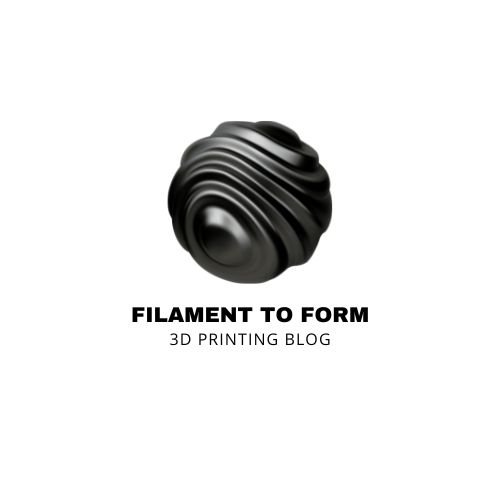
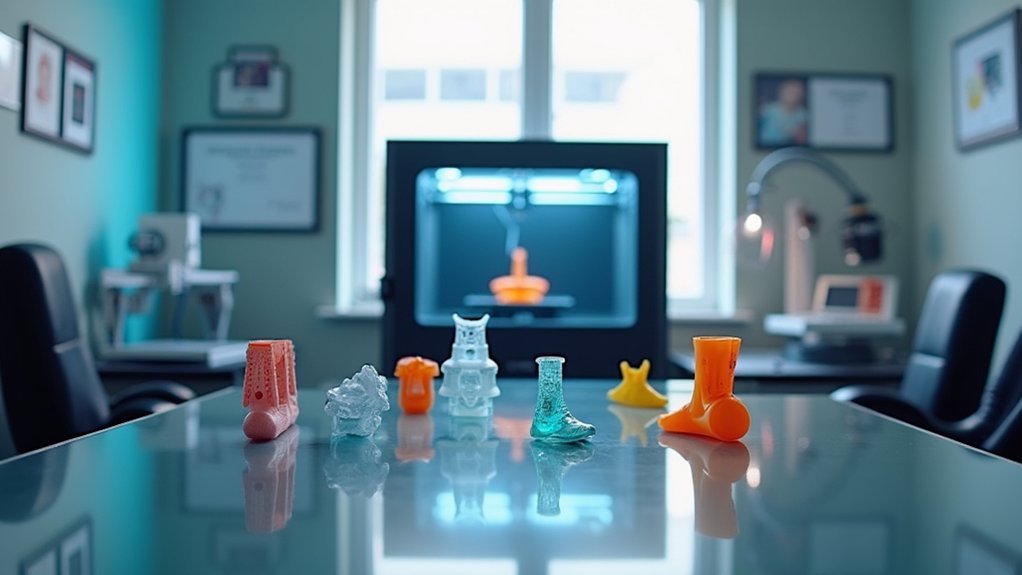

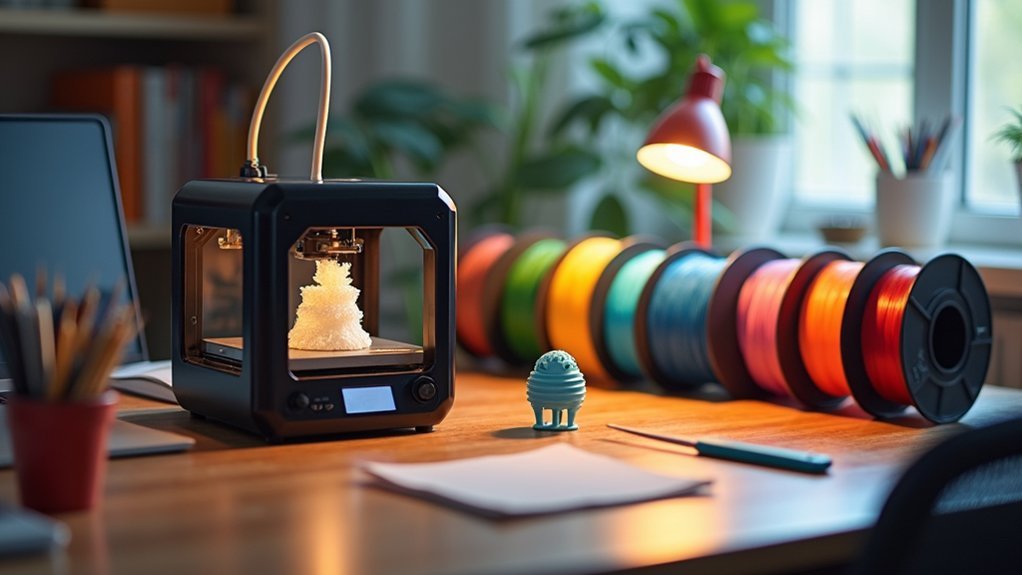
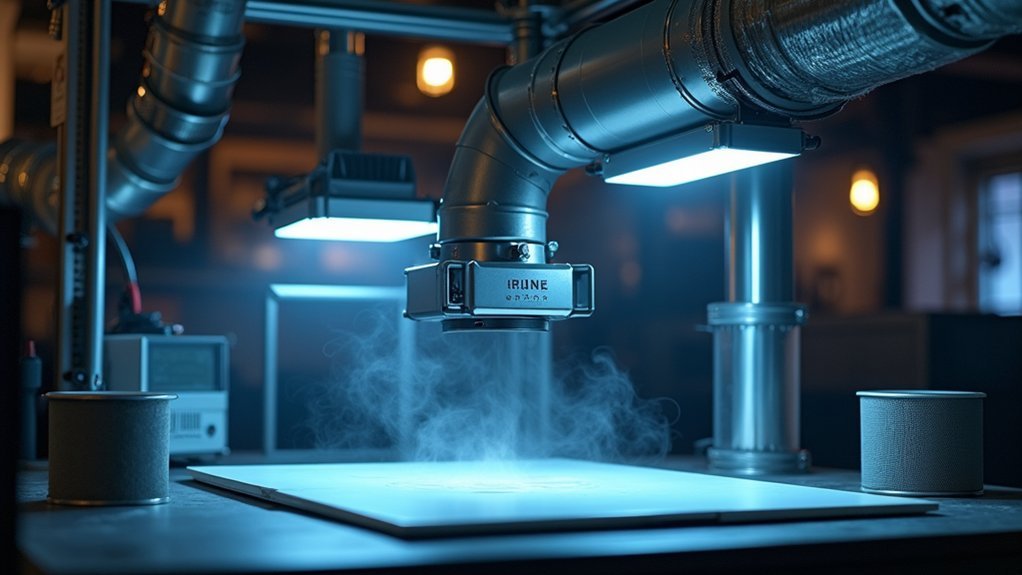
Leave a Reply